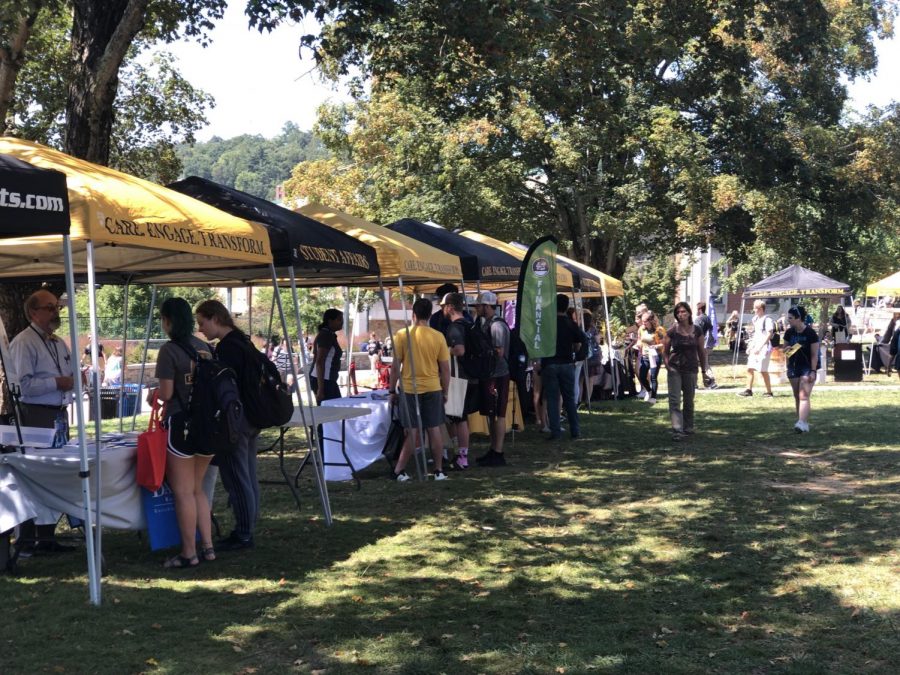There is a resource on campus that wants to help students achieve Personal Excellence through Academic Knowledge.
PEAK is a resource offered by the learning center and teaches academic soft skills through workshops on specific topics and drop-in hours where students can get one-on-one support catered to their individual needs.
Every afternoon from Monday to Thursday until May 1, students can stop by for one or both of these services. Drop-in hours are held immediately before every presentation. Both drop-in hours and workshops are held in 143 D.D. Dougherty Hall.
During these hours, students can get help from Peer Academic Leaders in any area where they are struggling. PALs help students organize their planners, create a timeline for completing projects and manage their school-related stress and anxiety, to name just a few examples.
They are advised by academic coaches who make sure they are equipped with the knowledge they need to help their peers succeed. Academic coaches are graduate students who oversee operations within the organization.
PALs also host workshops that teach a variety of academic soft skills with content developed collectively by the PEAK team. The same presentation is shown every night of a given week and a different presentation is shown every week of each semester. They cover topics like reading and studying skills, health and stress management.
According to Academic Coordinator Amanda Waterman, she and her team want to equip students with the tools they need to face their struggles with confidence. PALs and academic coaches alike insist that every student can learn something from them. They try to fill the gap left by primary and secondary education to teach college students academic soft skills.
Some soft skills are geared towards day-to-day life, like learning how to manage stress around a busy schedule, a topic that PEAK will be covering April 15-17. These are the skills that PALs devote themselves to learning and helping cultivate in others.
Each workshop focuses on introducing students to new strategies they can store in their academic toolbox. The reading skills workshop, for example, taught a variety of reading methods that might improve reading comprehension.
Taking into account the many different ways students process information, the workshops give students options to choose from, making them more likely to find something that works for them.
The complete list of workshops being offered this semester can be found on the Student Learning Center’s Engage page.
PALs wear many hats but when a student needs help that only a specialized professional can provide, they will be directed to the appropriate department on campus. Their goal is to get every student the help they need, whether that means a trip to the University Writing Center to work on a difficult essay or an appointment with the financial aid office to learn how to start making payments towards school.
“It’s the allocation of resources in one place,” PAL Kaysha Wizzart said.
Waterman wants students to know they are not alone. Waterman has built her career on helping students succeed in school. She said she knows the kinds of struggles students face and knows it is common to feel ashamed of not being able to keep up.
“There is no shame in seeking out help,” PAL Kennedi Ratcliff said.
She and her colleagues hold paid positions in PEAK, which typically starts hiring towards the end of the spring semester. They are hired no earlier than their sophomore year. This is to ensure they are familiar with the trials and tribulations of the college experience and can share their wisdom with students experiencing college for the first time.
The group prides itself on its peers-teaching-peers academic model. Coordinator Amanda Waterman believes a student instructor can connect with other students on a level a professor cannot access.
Any upperclassman who wants to help other students and is interested in this kind of content can apply to become a PAL.
They are constantly revising their content to make sure it is as useful as possible. They collaborate with each other in weekly meetings to refresh their knowledge on the topics they teach.
“Even I learn new things sometimes doing the PEAK workshops,” Wizzart said. .


